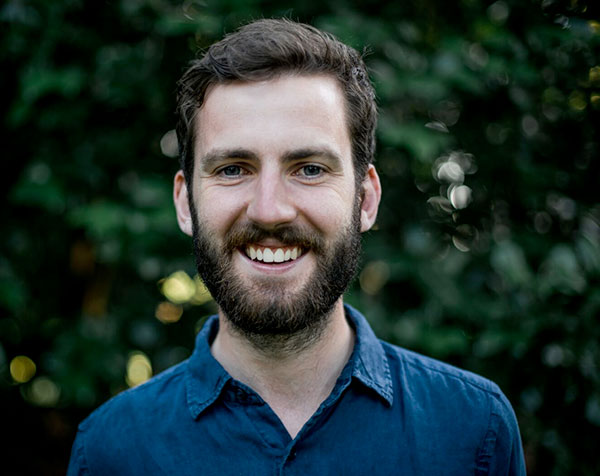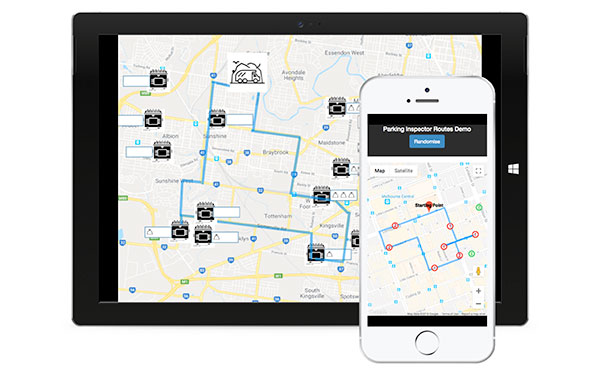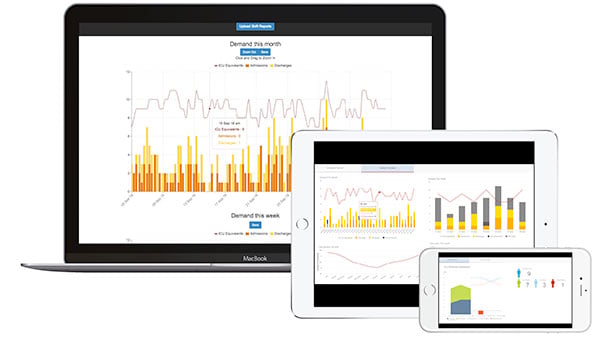Tim Kallady is a man stamping his name onto the future of Artificial Intelligence inventions. Read on as he explains how his AI-centered startup, Piccard.ai is working to enhance employees rather than replace them.
Hoping to be amongst the first to ride the silver wave of Artificial Intelligence (AI) is civil engineer-cum-entrepreneur Tim Kallady. Launching his brand new startup Piccard.ai just three months ago, he is determined to turn the stuff of science-fiction into practical solutions for businesses across all industries right from the heart of Melbourne. Describing AI as an underlying technology that will set off an explosion of inventions, he’s spearheading this movement by offering technology that helps with everything from predictive forecasting and bettering the rostering system in hospitals to optimising routes for bin collectors. Hive Life chatted to man behind Piccard.ai, as he works to dispel the fear of AI as a murderous robot intent stealing our jobs to make room for its rebrand as a force as revolutionary to the business world as electricity was to the 19th century.

As with many other revolutions, this one had small beginnings. Working for a civil engineering company, Tim had his first taste of entrepreneurship with his own virtual tour, real estate app, or his “crash-course in startups”, as he describes it. However, everything changed once he was exposed to the wonders of AI away from what he knew from dystopian films. “When I started to learn about what the capabilities were, I got really excited about the fact that it was able to solve so many problems and really wanted to become part of this process,” he remembers. “I became more excited about that than I was about my job at the time, so that’s what triggered me to break away and start my own thing.”

It took a year of hustling and tinkering, but Piccard.ai finally launched three months ago with ambitious aims in several markets. “I guess what I saw was an opportunity to solve a whole range of different problems, not just one,” Tim explains. “I had this idea that I wanted to be an inventor. AI is a bit similar to electricity. When that came along it was the underlying technology that sparked a whole flurry of invention. That’s the kind of vision I have for this company.” With this ethos in mind, Tim named the company after eccentric Swiss inventor, Auguste Piccard, who invented a hot air balloon that would carry him so high he could measure the atmosphere.
Using similarly ambitious technology, Tim developed three broad, AI-driven solutions that can be moulded to fix any client’s problem. The first is forecasting, which, using weather, historical trends or times of day, can help hospital rostering or even predict demand for a seaport. The second is optimisation and resource allocation, which similarly has a broad scope from deploying ambulances efficiently using data or aiding waste collectors with bin sensors. Finally, there is monitoring, which, through making sense of data from IoT, can predict anything from flash floods to when heavy machinery may need replacing.

So, why should a company invest in AI? “There’s a bit of a winner takes all dynamic in AI,” says the entrepreneur. “As you implement AI, it is constantly learning and improving the way it operates. So, if you need to make changes to the way you make data, the earlier you implement AI, the quicker it’ll start learning. It has this snowball effect in that the AI will be even better and deliver more efficiently, giving you an exponential advantage over your competitors who aren’t using it.” More than that, he sees a commercial incentive. Using AI can cut down costs as predictive data helps the efficient allocation of resources. Tim shrugs, “If anything, that’s an incentive to invest in AI because you know you will get a return from that investment.”
Despite his enthusiasm, there are still elements of distrust and unwillingness to invest in such new-age tech, not to mention fears of a new industrial revolution that’ll put white-collar workers out of a job, to contend with. Tim soothes bundled nerves, “I don’t think we should be afraid. We’re going to see AI having an impact in subtle ways that you perhaps won’t even know, and it will give you the tools to do your job better.” He gives the example of an optometrist who uploads medical photos to a software system that tells you what the photo indicates in terms of risk factors and what to look into. “It’s not replacing the optometrist, it’s helping them do their job better, make fewer errors and flag things they may be looking for. That’s going to be the impact AI has on white-collar workers – it’s useful software that will make incremental impacts.”
With two cutting-edge tech businesses under his belt at the tender age of 25, Tim has found a way to make his mark on the world under one umbrella brand. “The vision I have for the company is to create a whole lot of AI-centered products that can each stand alone and be really disruptive revolutionary products. I would love it if I could spin off a whole lot of different small companies,” he enthuses. Much as Thomas Edison illuminated 1879 with the light bulb, Tim Kallady looks as though he will get his name in the history books through illuminating the working world today through IoT data and optimised routes.




